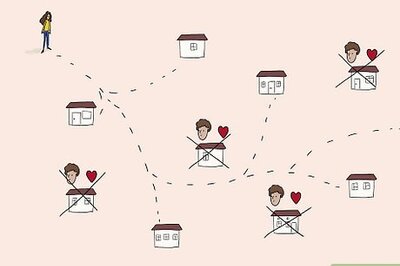
views
Unpleasant behaviour, insecurity issues, or physical and emotional abuse are how people usually perceive toxic relationships to be. Nevertheless, they overlook the fact that the most critical characteristic of a toxic relationship– is “toxic communication patterns”. The quality of your relationship can be judged on the basis of the way you talk to and about your partner. Negative communication techniques include dismissing what your partner says, displaying contempt, inflicting emotional pain on your partner with words as a form of retaliation, etc. The way we communicate with a person is a reflection of our upbringing.
Acknowledging the same, psychologist Nicole LePera dropped a post on Instagram. She mentioned in the caption that one of the most detrimental effects of growing up in co-dependent homes is that it influences your communication. It is crucial to be aware of some patterns while you are in a conflict with others. “It’s helpful to understand them, to witness when you engage in them, and to practice getting out of your habitual reactions to conflict,” she added.
According to Nicole listed below are some of the dysfunctional skills that we must unlearn as they hold us back in relationships:
A post shared by Dr. Nicole LePera (@the.holistic.psychologist)
- Shaming:Trying to make the other person feel like their emotions are the problem, not the issue at hand. For example, consistently blaming them for being too dramatic or sensitive.
- Projecting:The psychologist claims that projecting is a defence mechanism of attributing actions that we do not like in ourselves to someone else.
- Scorekeeping:Scorekeeping is when partners avoid the reason for the present conflict by bringing up the past to “one up” each other.
ALSO READ: How to Nurture Love in Your Relationship? Expert Suggests
- Silent treatment: Withdrawing yourself or shutting down completely to express disapproval or avoid addressing the problems.
- Name-calling/shaming: We often come across adults calling each other names and insulting one another. Instead of doing this, you should act like mature people and have a proper conversation.
- Deflection: Trying to change the subject and blaming your partner in order to avoid personal responsibility.
Read all the Latest Lifestyle News here
What's your reaction?




















Comments
0 comment